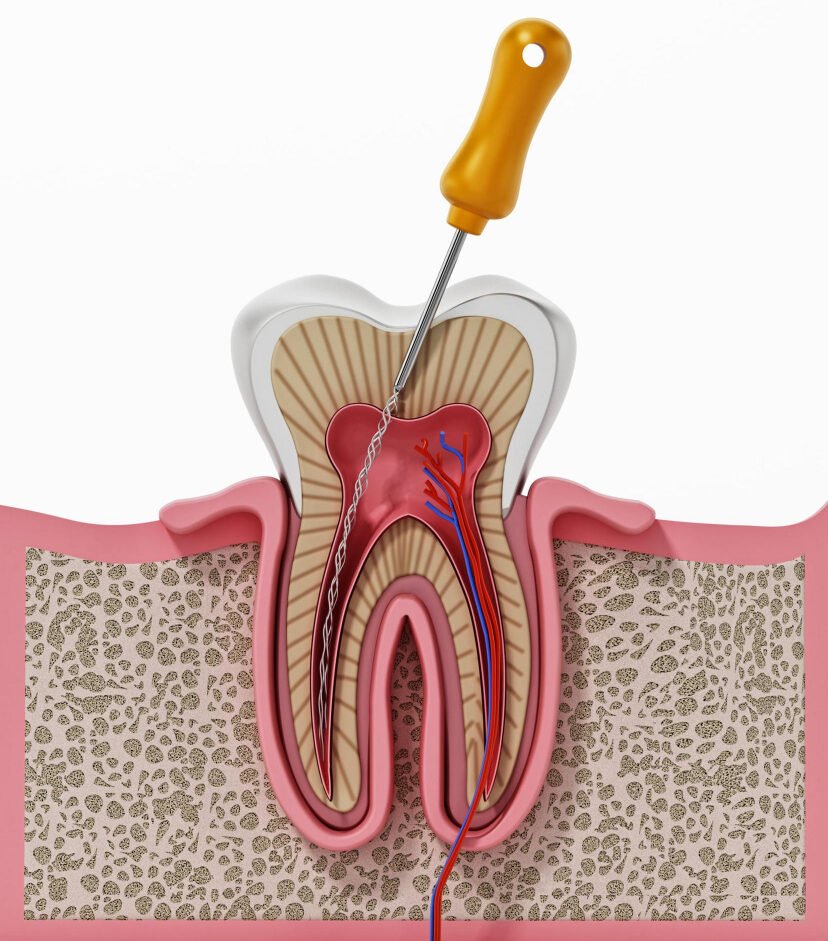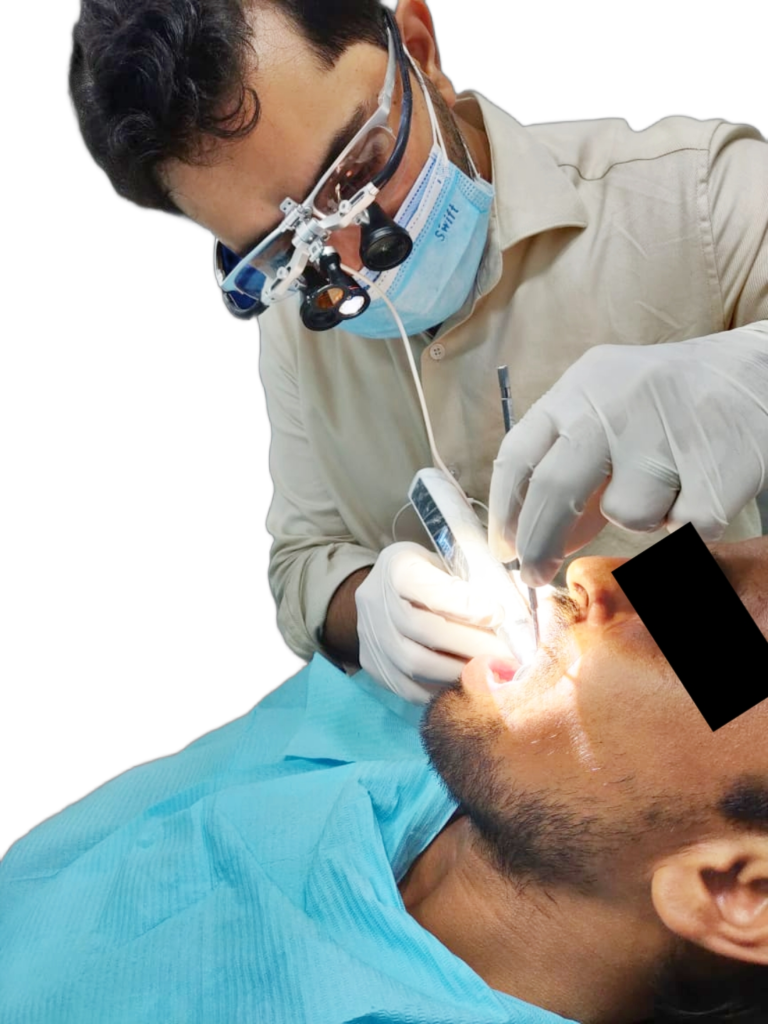Click to call
Root Canal Treatments
What is it all about?
Root canal treatment is a dental procedure used to preserve a tooth and relieve pain and discomfort caused by infection or damage to the tooth’s pulp, which is the innermost part of the tooth. This treatment is often necessary when a tooth has a deep cavity, a cracked or fractured tooth, or a dental abscess, as these conditions can lead to pulp inflammation or infection.
The Process:
Evaluation: Before embarking on a root canal, your dentist or endodontist employs X-rays to assess your tooth’s condition, ensuring a tailored treatment.
Comfort: To ensure a painless journey, a local anesthetic is applied to numb the tooth and its surroundings.
Access Point: Your dentist carefully creates an opening in the tooth’s crown to reach the inner pulp chamber.
Cleansing and Shaping: Specialized tools are used to remove damaged or infected pulp and clean the inner chamber, eliminating any remaining debris or bacteria.
Sealing: Once the canals are prepared, they are sealed with a biocompatible material called gutta-percha to prevent further infection.
Restoration: After a root canal, your tooth may be weaker. To safeguard and restore it, a crown or alternative restoration is placed on top, ensuring both function and appearance are preserved.

When Is Root Canal Treatment Needed?
Deep Cavities: When you don’t treat a cavity (that little hole in your tooth) and it gets really deep, it can reach the inside part of your tooth, called the pulp. This can cause an infection or inflammation.
Cracked or Broken Teeth: Sometimes, accidents, injuries, or even grinding your teeth too hard can create cracks or breaks in your teeth. If these cracks go all the way to the inside of the tooth (the pulp), it can get infected.
Dental Abscess: Think of an abscess like a pocket of pus caused by a bacterial infection. If this pocket forms close to the inside of your tooth, it might mean you need a root canal to get rid of the infected stuff.
Lots of Dental Work: If your tooth has had a bunch of dental treatments, like fillings or crowns, the inside part (the pulp) can get hurt. In that case, you might need a root canal to fix it.
Pulpitis: Pulpitis is just a fancy word for when the inside of your tooth gets all inflamed and hurts. It can happen because of accidents, really bad cavities, or lots of dental work.
Tooth Pain or Sensitivity: If your tooth hurts a lot or feels really sensitive to hot and cold stuff, even when you’re not eating or drinking them, it could mean there’s something wrong with the inside of your tooth.
Tooth Changing Color: If your tooth turns gray or dark yellow, it might mean the inside part (the pulp) is damaged.
Swelling and Bumps on Gums: If your gums swell up or you see a pimple-like bump near one of your teeth, it could be a sign of an infection inside the tooth.

10 Benefits of Root Canal Treatment
1. Pain Relief: When you have a root canal, it’s usually because your tooth hurts really badly due to an infection or swelling inside it. The dentist cleans out the bad stuff, and that gets rid of the pain right away.
2. Preservation of the Natural Tooth: Root canals let you keep your original tooth. This is important because it helps you chew your food properly and keeps your other teeth from moving around, which can lead to biting problems.
3. Improved Oral Health: By getting rid of the infection and cleaning up the inside of your tooth, root canals stop the bad bacteria from spreading to other parts of your mouth and your body. This keeps your overall mouth health in check.
4. Aesthetics: If you have a root canal, you can often keep your natural tooth, which makes your smile look better compared to having the tooth pulled out and replaced with a fake one.
5.Efficient Chewing: When you maintain your natural tooth through a root canal, it means you can eat and digest your food properly. If you lose a tooth, it might force you to change your diet, which can lead to nutritional problems.
6. Speech: Missing teeth can make it hard to talk clearly and pronounce certain words. Root canals help maintain your speech patterns.
7.Long-Term Cost Savings: Even though a root canal might seem expensive upfront, it’s often a more cost-effective choice in the long run when compared to pulling the tooth and considering options like dental implants, bridges, or dentures.
8. No Need for Prosthetic Replacement: Teeth treated with a root canal don’t need to be replaced with artificial teeth, unlike when a tooth is extracted. This saves both time and money in the long term.

9. Preventing Further Complications: Ignoring dental infections can lead to more serious health problems like abscesses, sinus infections, or infections in other parts of your body. Root canals help prevent these complications.
10.Minimal Discomfort: Thanks to modern dental techniques and anesthesia, root canal procedures are relatively comfortable, and you won’t experience too much discomfort during or after the treatment.
